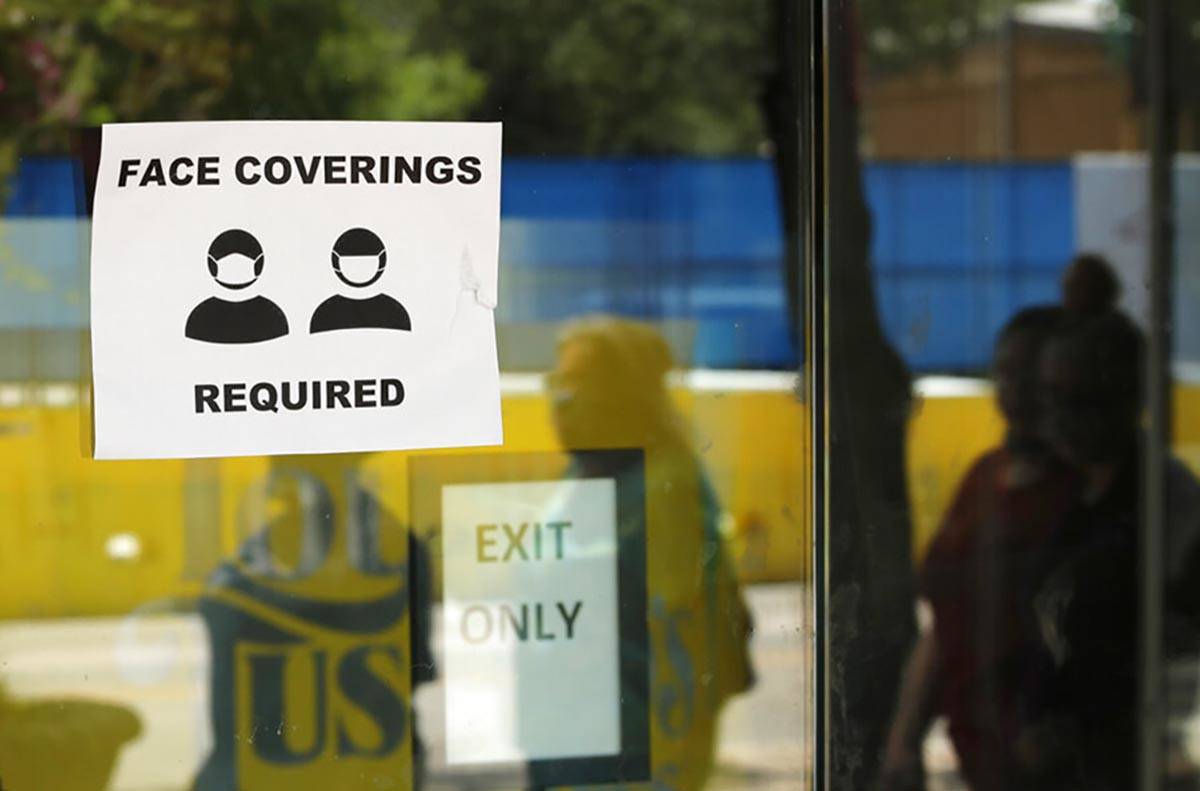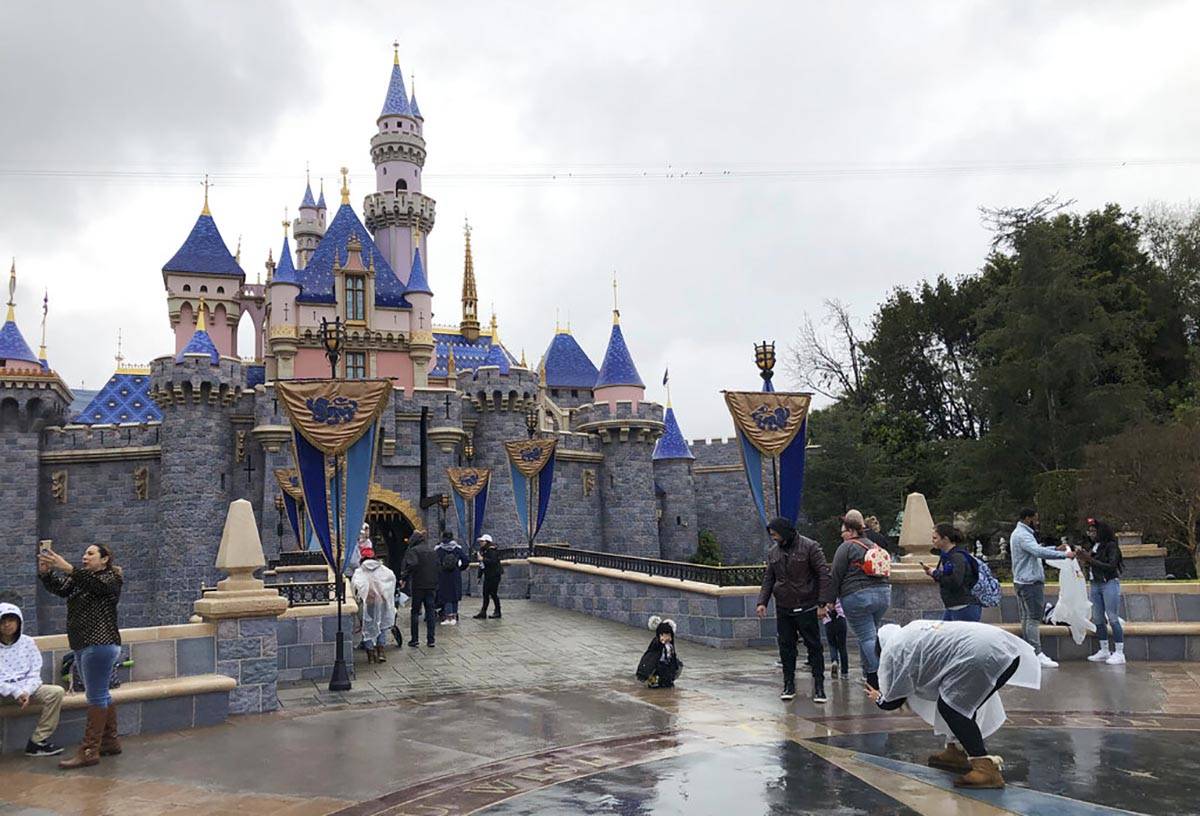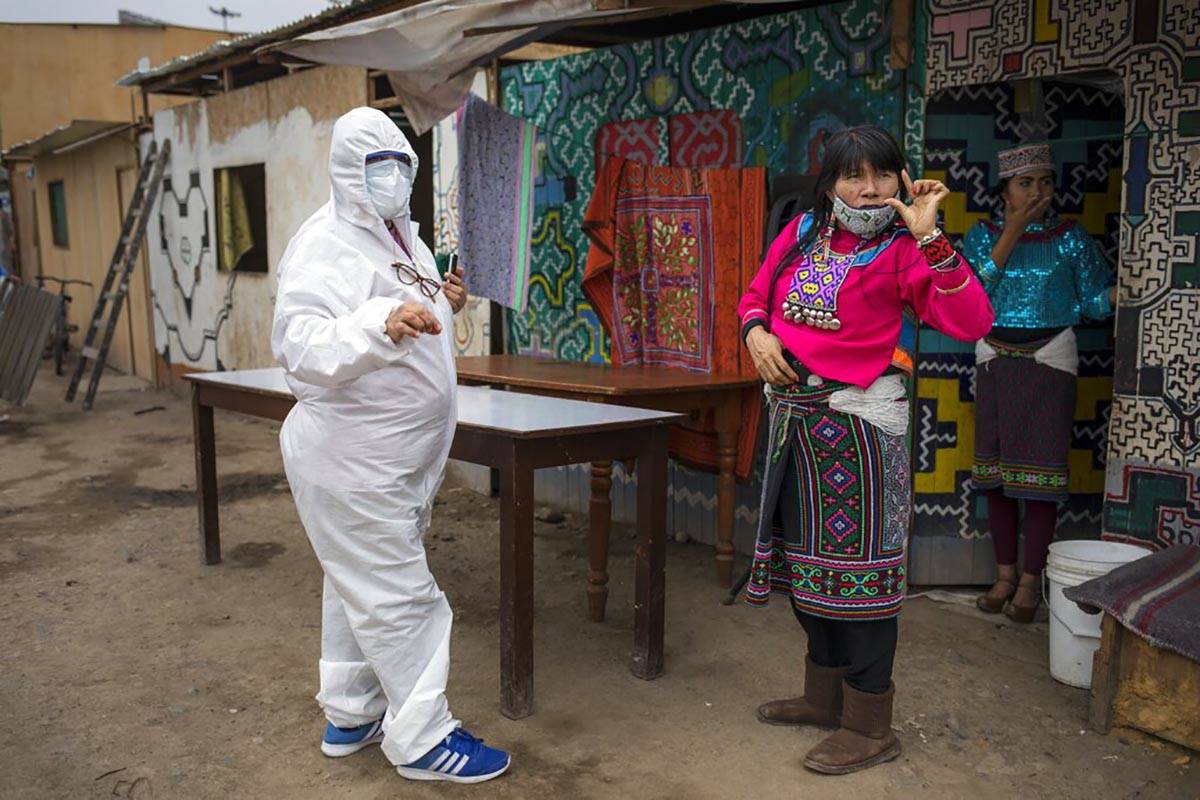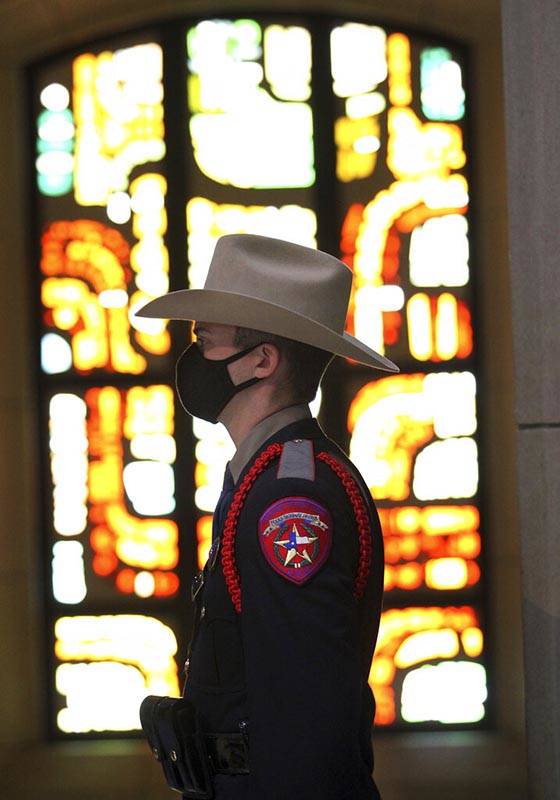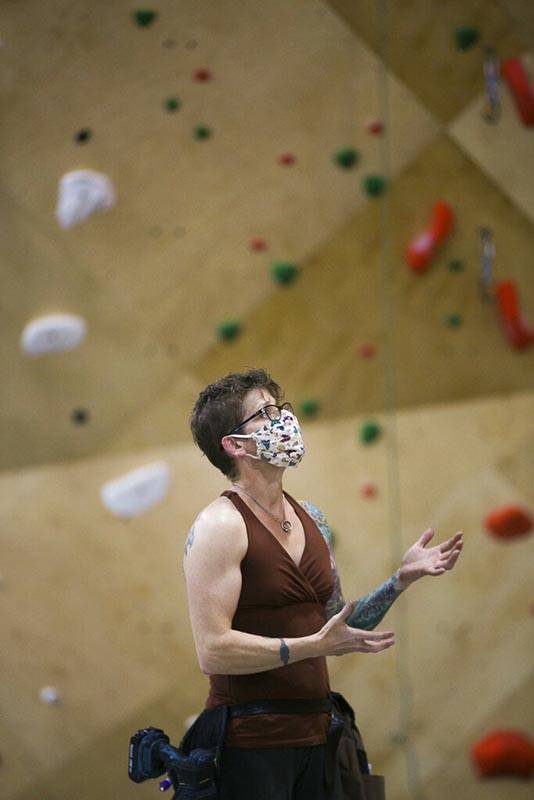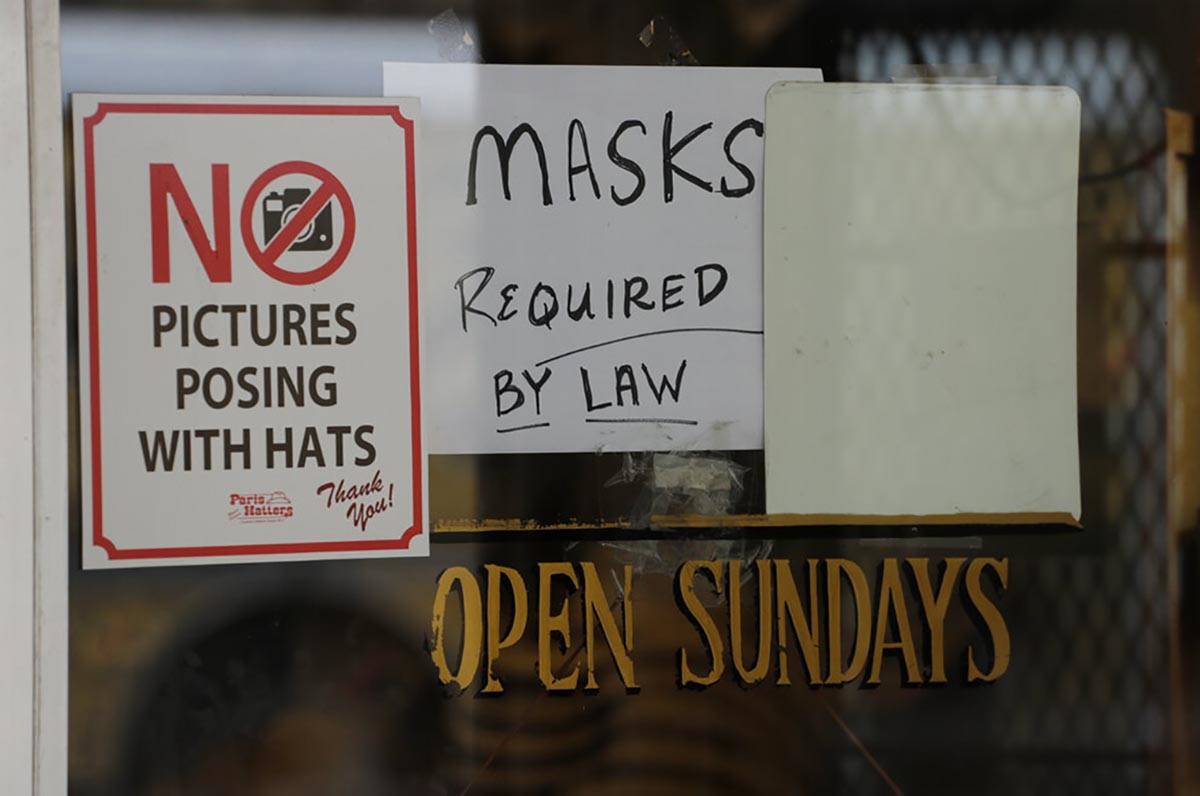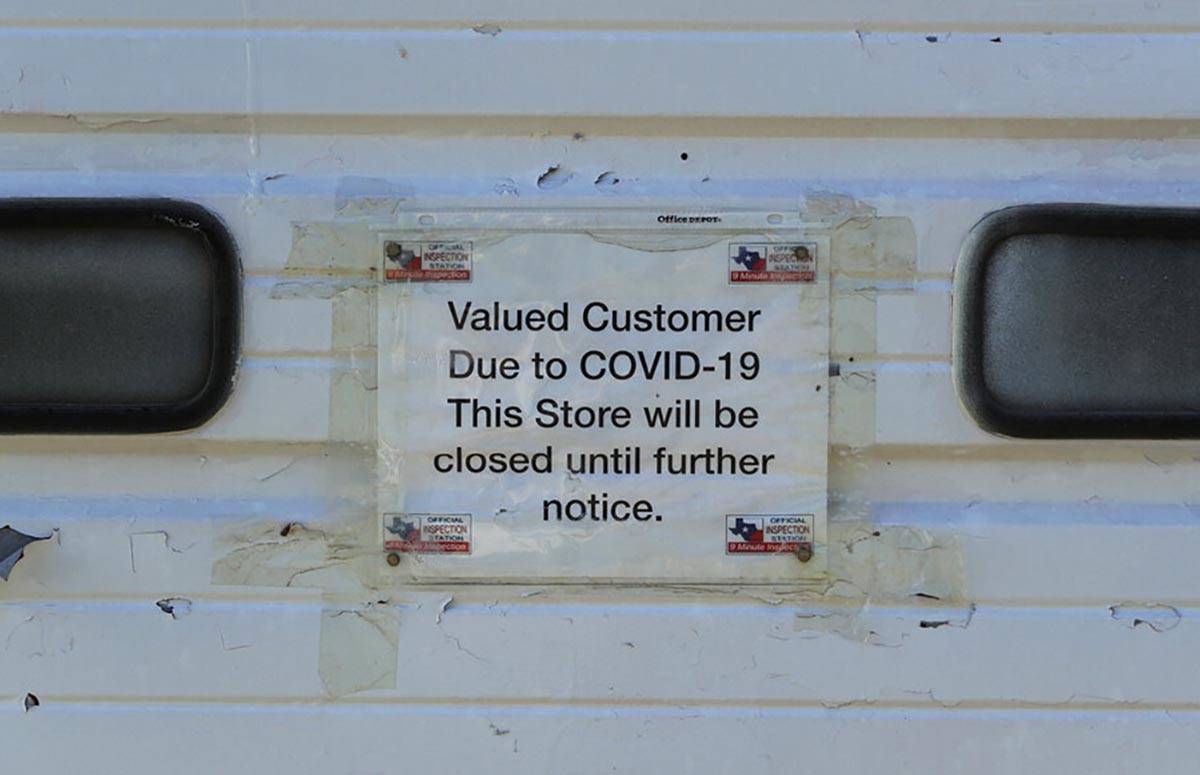Texas governor puts reopening on pause as virus cases soar
AUSTIN, Texas — Gov. Greg Abbott on Thursday halted elective surgeries in Texas’ biggest counties and said the state would “pause” its aggressive reopening as it deals with a surge in coronavirus cases and hospitalizations that has made it a virus hot spot.
The suspension of elective surgeries is designed to protect hospital space in the Dallas, Houston, Austin and San Antonio areas. Statewide, the number of COVID-19 patients has more than doubled in two weeks. Texas has reported more than 11,000 new cases in the previous two days alone.
The pause on reopening does not roll back previous orders that already allowed much of the economy to reopen. But it would appear to slow down any planned expansion of occupancy levels at places including bars, restaurants, amusement parks and other venues.
“We are focused on strategies that slow the spread of this virus while also allowing Texans to continue earning a paycheck to support their families,” Abbott said in a statement. “The last thing we want to do as a state is go backwards and close down businesses. This temporary pause will help our state corral the spread until we can safely enter the next phase of opening our state for business.”
By reimposing a ban on elective surgeries, the Republican is returning to one of his first actions when the virus first emerged in Texas in March. He later rescinded the order during an aggressive reopening of the state in May that lifted lockdown orders ahead of most of the U.S.
Abbott this week has taken a newly urgent tone about the worsening trends and is now telling the public they should stay home. On Thursday, the number of hospitalizations climbed to nearly 4,400 patients, setting a new record for a 13th consecutive day.
Abbott has also urged Texans to wear masks in public. The governor hasn’t issued a statewide mask order, but the state’s cities and counties have imposed new orders on businesses to require customers and workers to wear face coverings.
20M Americans may have had virus
U.S. officials believe as many as 20 million Americans have contracted the coronavirus, suggesting millions had the virus and never knew it.
That’s nearly 10 times as many infections as the 2.3 million cases that have been confirmed and comes as the Trump administration works to tamp down nationwide concern about the COVID-19 pandemic as about a dozen states are seeing worrisome increases in cases.
The administration also looks to get its scientific experts back before the public more as it tries to allay anxieties about the pandemic while states begin reopening. Since mid-May, when the government began stressing the need to get the economy moving again, the panel’s public health experts have been far less visible than in the pandemic’s early weeks.
Twenty million infections would mean about 6% of the nation’s 331 million people have been infected, leaving a majority of the population still susceptible to the virus. Previously, officials at the Centers for Disease Control and Prevention and the nation’s top infectious-disease expert, Dr. Anthony Fauci, have said that as many as 25% of infected people might not have symptoms.
The new estimate is based on CDC studies of blood samples collected nationwide. Many infections were not caught in early testing, when supplies were limited and federal officials prioritized testing for those with symptoms.
Surges in several states
Elsewhere, coronavirus case numbers are rising to dire new levels in several U.S. states and around the world, potentially wiping out two months of progress in fighting the pandemic and prompting governments and businesses to impose new restrictions.
Indonesia exceeded the 50,000 mark for confirmed infections on Thursday as the government allowed businesses to reopen amid increasing economic pressures. In Melbourne, Australia, health workers planned to go door-to-door to test more than 100,000 residents in a coronavirus hot spot that threatens to undo the nation’s success in battling the virus.
In the Indian capital of New Delhi, which has reported over 70,000 cases, authorities will conduct house-to-house screenings for the virus. With the city’s hospitals overwhelmed, military personnel were providing care at makeshift medical wards fashioned from railroad coaches. India reported a record 16,922 cases on Thursday, taking the national total to 473,105, with nearly 15,000 deaths.
American hospital officials and health experts, meanwhile, are warning that politicians focusing on the economy and a public tired of being cooped up are letting a deadly medical disaster spiral to new heights. The 34,700 COVID-19 cases reported Tuesday returned the U.S. to near its late April peak of 36,400 new cases in one day, according to a count kept by Johns Hopkins University.
Single-day case records
Several states have set single-day case records this week, including Arizona, California, Mississippi, Nevada, Texas and Oklahoma. Some also broke hospitalization records, as did North Carolina and South Carolina.
“People got complacent,” said Dr. Marc Boom, CEO of the Houston Methodist hospital system. “And it’s coming back and biting us, quite frankly.”
The virus has been blamed for over 120,000 U.S. deaths — the highest toll in the world — and more than 2.3 million confirmed infections nationwide. On Wednesday, the widely cited University of Washington computer model of the outbreak projected nearly 180,000 U.S. deaths by Oct. 1.
New York Gov. Andrew Cuomo, New Jersey Gov. Phil Murphy and Connecticut Gov. Ned Lamont announced that their states, which were devastated by early outbreaks that appear to be under control, will now require travelers from certain states to quarantine for 24 days upon arrival.
The quarantine applies to people coming from states with a positive test rate higher than 10 per 100,000 residents on a seven-day average, or with a 10% or higher positive rate over seven days.
EU to open borders July 1
European nations appeared on track to reopen their shared borders by July 1, and their EU representatives debated criteria for lifting restrictions on visitors from outside Europe. In Greece, aviation officials were visiting regional airports that are due to open to direct international flights on July 1.
Americans are unlikely to be allowed into EU nations for at least the next few weeks, given how the pandemic is flaring in the U.S. and President Donald Trump’s ban on Europeans entering the United States.
World financial markets were rattled by the setbacks in fighting the pandemic, which clouded prospects for recoveries of economies mired in their worst downturn since the Great Depression of the 1930s. Asian shares fell Thursday after the Dow Jones Industrial Average lost over 700 points overnight for a drop of 2.7% and the broader S&P 500 fell 2.6%.
The Africa Centers for Disease Control and Prevention said Thursday that the continent’s cases have surged to more than 336,000, up by 10,000 from a day earlier. The Africa CDC chief said the pandemic on the 54-nation continent “is picking up speed very quickly” while shortages of testing materials and medical equipment remain severe.
Masks, anti-virus measures embraced
Alarmed, some states are moving to ensure more consistent use of face masks and other anti-virus measures.
North Carolina Gov. Roy Cooper, a Democrat, ordered people to wear masks in public as the daily count of hospitalizations and new cases hovered near records. In Florida, several counties and cities recently enacted mask requirements.
Dr. Peter Hotez, an infectious-disease expert at the Baylor College of Medicine in Texas, said he worries that states will squander what time they have to head off a much larger crisis.
“We’re still talking about subtlety, still arguing whether or not we should wear masks, and still not understanding that a vaccine is not going to rescue us,” he said.
Eiffel Tower opens after 104 days
In Paris, the city’s iconic Eiffel Tower reopened to visitors for the first time Thursday after its longest-ever closure in peace time: 104 days. But enjoying views from the top requires some effort: the lift that normally carries visitors up the 324-meter (1,063-feet) tall wrought-iron structure remains closed, so for now people have to take the stairs.
“It’s very special, very special because it’s only the Paris people,” said Annelies Bouwhuis, a 43-year-old visitor from the Netherlands. “We’ve seen a lot Paris people enjoying their city, enjoying their parks without all the tourists.”
Skyscraper-studded Dubai, in the United Arab Emirates, ended a monthslong nightly curfew, saying in a tweet that there would be “free move all day & night” as long as people wore masks and maintained social distancing.
Beijing outbreak undxer control
In China, where the virus first appeared late last year, an outbreak in Beijing appeared to have been brought under control. China reported 19 newly confirmed cases nationwide amid mass testing in the capital.
South Korea was still struggling to quell an outbreak there, reporting 28 new cases on Thursday, mostly associated with nightlife, churches, a huge e-commerce warehouse and door-to-door sales. But the numbers have not reached the hundreds of new cases every day in late February and early March.
Nearly 500K deaths worldwide
Worldwide, over 9.4 million people have been confirmed infected, and nearly 500,000 have died, by Johns Hopkins’ count. Experts say those numbers are low due to limited testings and missed mild cases.
Dr. Michael Ryan, the WHO’s emergencies chief, said when countries will hit their peak numbers of infections hinges entirely on what people do.
“There are no magic answers. There are no spells here. You can’t divine this away,” Ryan told reporters in Geneva. “We have to act at every level.”



